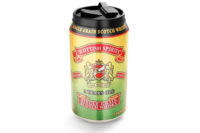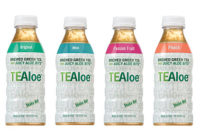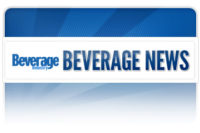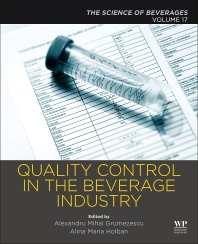![]()
Industry Gets its day in Court
A battle has been
brewing in the world of alcohol beverages and it will be fought in the
nation’s highest court before the year is over. The U.S. Supreme
Court is scheduled to hear arguments on Dec. 7 regarding direct shipping
lawsuits in Michigan and New York — a fight that pits two aspects of
the U.S. Constitution against each other, as well as two parts of the
beverage industry.
Although the cases to be heard by the court involve
wine sales, the issue of direct shipping affects beer and spirits as well.
In question are laws in Michigan and New York that prevent out-of-state
wineries from shipping products directly to consumers in those states. Both
states allow local wineries to ship product to residents, and the
organizations behind the lawsuits say that violates the Commerce Clause of
the Constitution, which is meant to protect interstate commerce. But the
Constitution has a competing interest in the form of the 21st Amendment,
which gives each state the right to regulate the sale and distribution of
alcohol beverages within its borders.
For history buffs, even those not directly involved
with the issue, the case provides an interesting look at the way the
industry has evolved. The repeal of Prohibition in 1933 recognized the
range of attitudes toward alcohol by giving control to the states, which
created a patchwork of local alcohol laws and sales methods. Most states
use a three-tier distribution system in which alcohol manufacturers sell
their products to wholesalers, who navigate local laws and make sure
alcohol is sold only to retailers and other establishments that will
legally sell it to consumers.
But technology often moves faster than the law, and
during the ’90s, the Internet created new opportunities to expose
consumers to niche products, and sell items that previously were only
available in other states.
Naturally, wholesalers and manufacturers have
different takes on the situation, and their respective livelihoods depend
on the outcome. Wholesalers, represented in part by the National Beer
Wholesalers Association and the Wine and Spirits Wholesalers of America,
believe they play an important part in encouraging responsible consumption
of alcohol and upholding local laws. Wholesalers also are responsible for
collecting government excise taxes for the states.
Wineries involved in the case say their small volumes,
combined with widespread wholesaler consolidation have shut them out of the
market, and their businesses depend on being able to sell directly to
consumers. WineAmerica, the Coalition for Free Trade, Family Winemakers of
California, and other supporters of the wineries say state licensing
agreements would provide for tax collection, and argue that a 2003 Federal
Trade Commission study indicates direct shipping does not promote alcohol
sales to minors.
While the beverage manufacturers involved in the
current case are small boutique wineries, challenges to the system could
have much bigger, farther-reaching effects. In theory, retailers also
could bypass wholesalers and buy directly from manufacturers. Costco
already has challenged the state of Washington, which prevents out-of-state
suppliers from selling directly to the retailer, while in-state companies
can do so.
Of course, the issue will not be decided by one
case — the question at hand deals with only part of the battle.
But all sides of the debate will be watching closely for the decision,
which is expected to be announced next year and could shape the future
direction of the industry. BI








